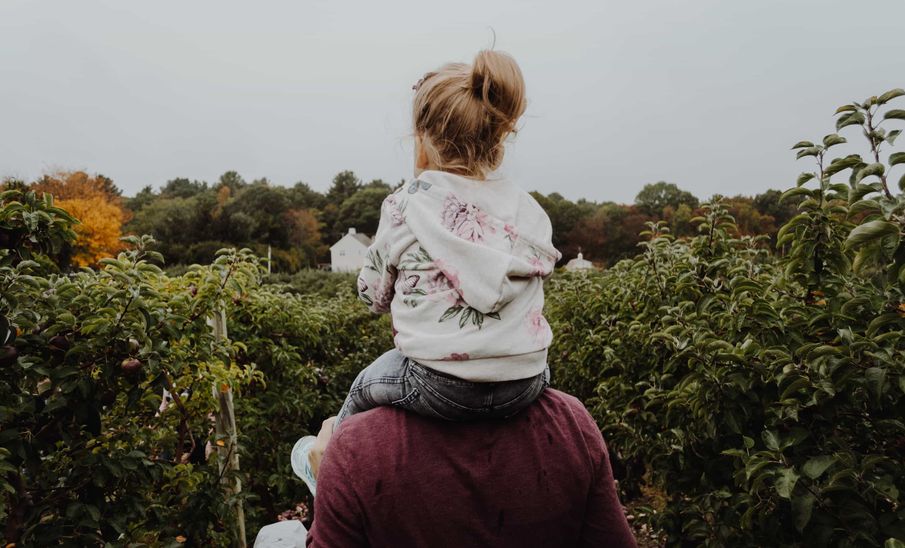New research from Bupa reveals that 6.2 million parents in the UK have delayed telling their children about a loved one’s cancer diagnosis, with one in five keeping it a secret entirely
Being diagnosed with cancer is a stark reality for millions of people, with one in two people in the UK being diagnosed at some point in their lifetime. And if we’re fortunate enough to not be, it is likely we will know someone who has, or will.
But despite this, new research from Bupa UK reveals that more than 6 million UK parents have delayed telling their child when a close family member or friend is diagnosed with cancer. More than a third of these parents waited until treatment was underway or finished. One in five (21%) kept it a secret entirely.
Bupa found the main reason for this delay or in some cases, avoidance, was because parents did not want to worry their children. The research saw that 14% of parents were worried that the news could have a negative impact on their child’s mental health, while 12% feared it would disrupt with their schoolwork.
Although parents are delaying the conversation of cancer to protect their children, Bupa’s Cancer Care team - who provide counselling services to cancer patients and their families - advise that being open with children and answering any questions or concerns they have may be the best approach.
However, four in 10 parents said they were unsure where to get support for children dealing with a loved ones’ diagnosis, and 10% said that helping their child deal with a cancer diagnosis affected their own mental health. Clearly, parents need more support.
To help parents in this situation, or anyone else unsure of how to bring up the topic of cancer diagnosis, Bupa has created a series of ‘I know someone with cancer’ guides. Parents can use these to explain not only what cancer means, but also what may happen, and guidance for helping children cope and understand their emotions.
The booklets, which are free to read and download, include:
- What does it mean?
- Visiting hospital
- Life at home
- Activity book
Julia Ross, Head of Cancer Care at Bupa UK said: “One in two people are expected to be diagnosed with cancer so it’s something that many families will unfortunately face.
“It can be a stressful, busy time with lots of decisions to make. No parent wants to upset their child, but withholding information may be more harmful, causing them to become anxious or worried.
“From my professional experience and as a parent, I know that children will respond differently, so it’s important to be adaptable. We offer our cancer patients and their families access to counselling and mental health support following a cancer diagnosis so that everyone gets the emotional support they need, when they need it.”
How to talk to a child about a cancer diagnosis
Julia Ross shares some advice for talking to children:
Take cues from them. Children can often sense when something isn’t right. For some, feeling like they’re being kept in the dark may lead to anxiety and stress, so being honest may be the best way to approach the subject.
Answer their questions. Encourage them to ask questions. Curious children will look for answers elsewhere, relying on misinformation from the Internet or friends, which may lead to unnecessary worry.
Don’t be afraid to show emotion. No parent wants to worry their child, but letting them see that you’re upset lets them know that it’s OK to feel sad. Hiding your emotions may make them feel that they shouldn’t be upset, or that other family members don’t care.
Spend quality time together. Sticking together as a family can be good for overall wellbeing, and it can help children feel support following a loved one’s diagnosis. Creating a supportive environment can help build resilience in children and make them feel more comfortable asking questions.
Seek support. Learning that someone you love has cancer is upsetting no matter how old you are. Notify your child’s school so that teachers can offer support and understand if performance falters slightly. If you need further help, don’t be afraid to investigate the support available locally for the whole family, including yourself.
If you or a loved one has been diagnosed with cancer, it can feel like you’re carrying the weight of the world on your shoulders. You can learn more about cancer, including how to talk to a child about cancer and how to support a loved one with a diagnosis on Counselling Directory.
“When I was diagnosed, I was amazed by how little I knew about cancer and how unprepared I (and those around me) had been,” says Karin. Read her story.


Comments